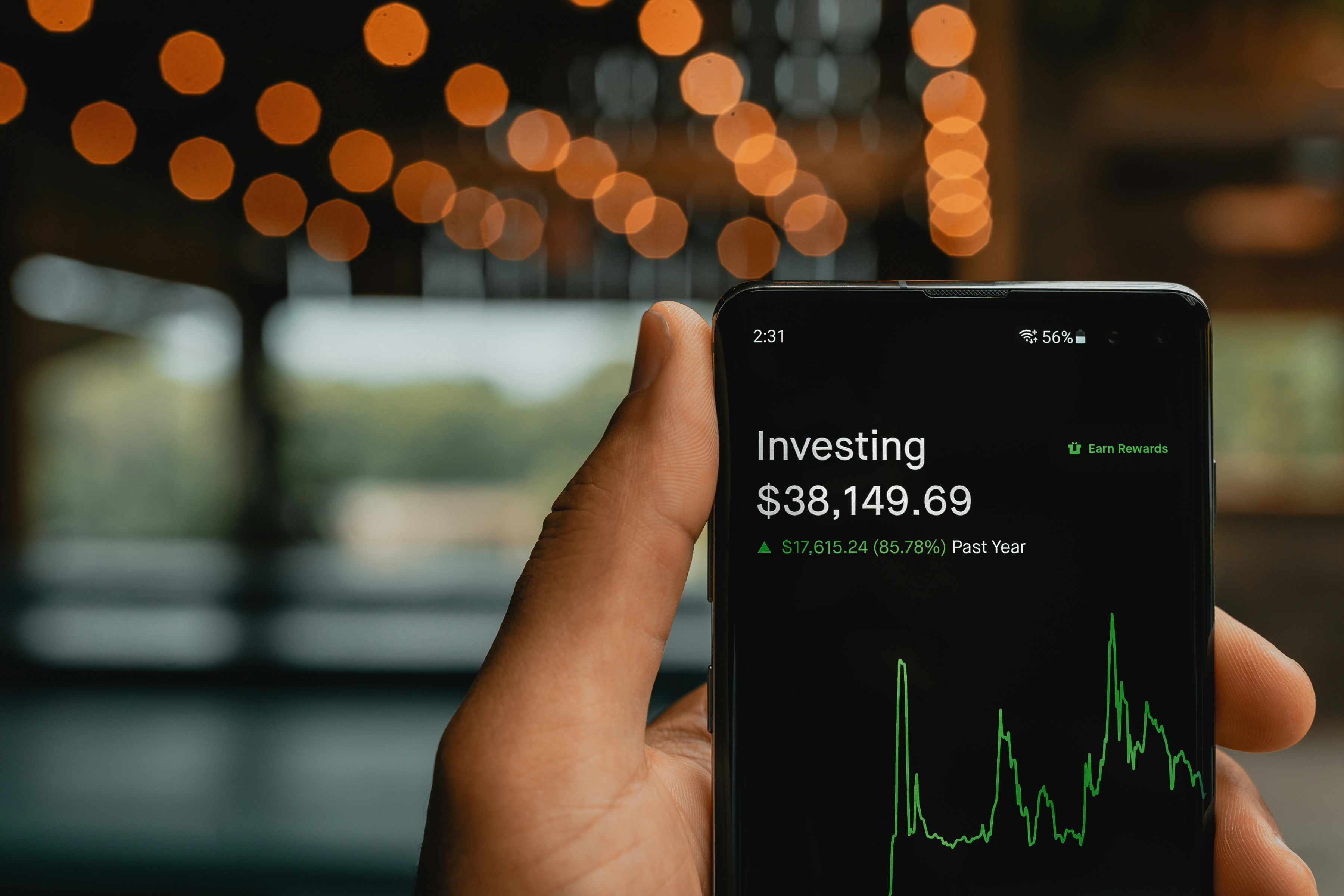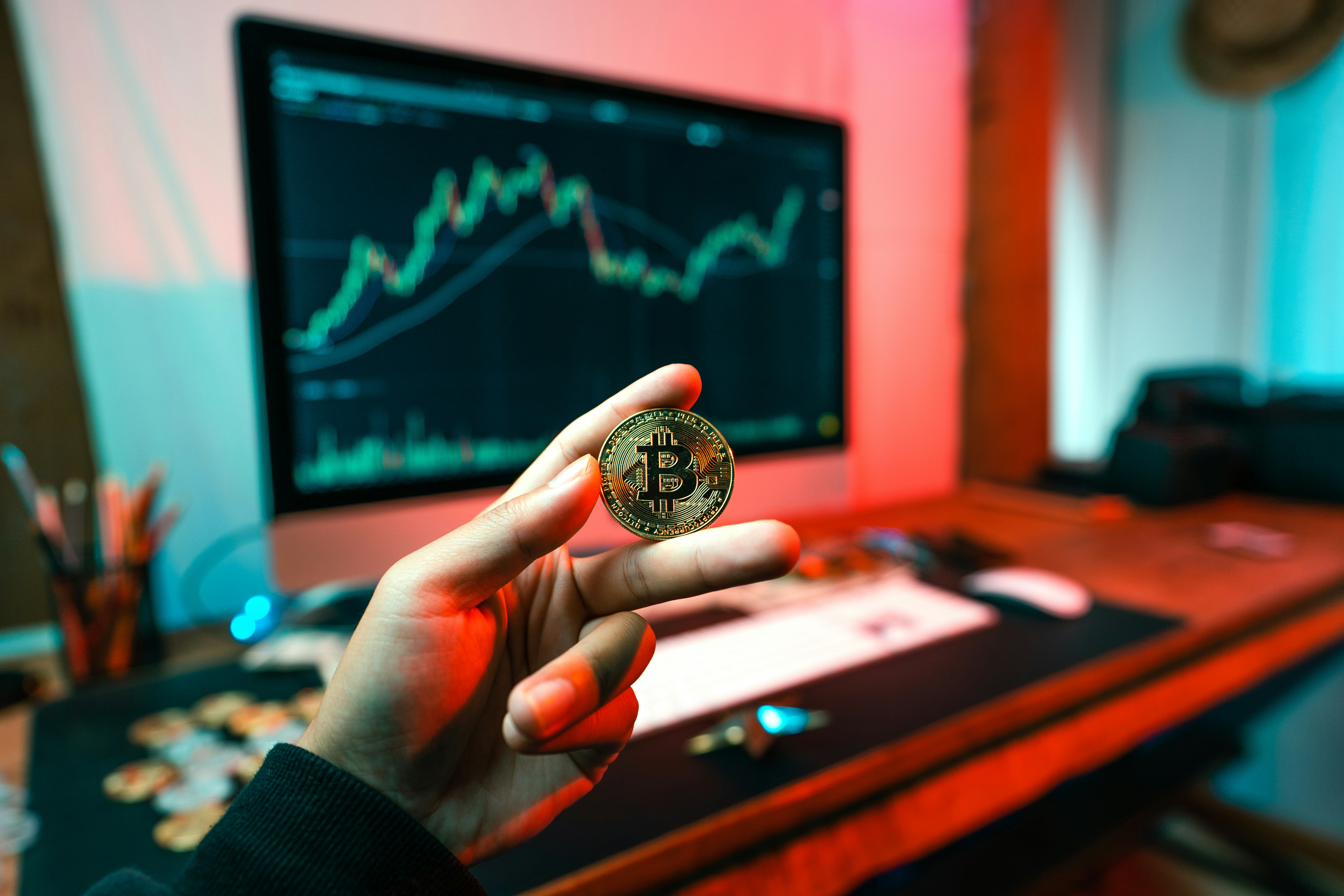What is Day-Trading? (And Why People Love It)
When you hear the word “day-trading” you might picture someone glued to their computer screen, watching colorful charts bounce up and down all day. And honestly? That’s not far from the truth.
Day-trading is basically the art (and the challenge) of buying and selling things like stocks, currencies, or crypto — all within the same day.
The main idea behind day-trading is pretty simple:
You want to buy something at a lower price and sell it for a higher price — FAST.
Sometimes traders hold onto something for just a few minutes, sometimes a few hours, but they usually close all their trades before the market closes for the day.
That’s why it’s called “day” trading — no sleeping on those trades!
So why do people get into it?
For many, it’s the excitement.
Day-trading is fast-paced and thrilling — every small move in the market can mean a win or a loss.
Others love the idea of being their own boss, working from anywhere with just a laptop and Wi-Fi.
And yes, some dream of making a full-time living or even getting rich through day-trading (although the truth is, it’s a lot harder than it sounds).
To be good at day-trading, you need more than just luck.
You need sharp focus, a solid strategy, and good risk management.
(And cojones of steel definitely help!)
It’s also about being okay with losing sometimes — because losses are just part of the game.
And day-traders mostly lose, but when they win, they win big.
That's why a good risk-management strategy is so important.
Is day-trading for everyone?
Not really.
It can be stressful, and it’s easy to lose money if you’re not careful and patient.
That’s why many people start by practicing with “demo accounts” — basically fake money — before putting real cash on the line.
But even with 1000 hours of demo trading, it's not sure that you will be successful with real money.
When trading with real money, you have to deal with emotions like fear and greed, which can cloud your judgment (especially greed... I speak from experience).
At the end of the day, day-trading isn’t about wild guesses.
It’s about making smart, fast decisions based on patterns, news, and good instincts.
For those who love the challenge, it can be an exciting way to engage with the market — but like any adventure, it’s important to know what you’re getting into.
That is what we will cover in this blog post.
Differences Between Day-Trading and Investing
Now, let's talk about the differences between Investing and day-trading.
At first glance, both involve putting money into the stock market (or crypto, or assets in general) with the goal of making a profit. But the mindset, strategy, and time frame behind each are very different.
Day trading is all about speed.
Like we said earlier, day-traders buy and sell assets within the same day — sometimes holding for only minutes or hours. They try to take advantage of small price changes, using charts and patterns to spot quick opportunities.
It’s fast, intense, and requires constant attention to the markets. Some traders might place dozens of trades in one day, always trying to stay one step ahead of the price.
Investing, on the other hand, is the long game.
Investors buy assets with the goal of holding them for months or even years. They believe in the long-term growth of the company or the market.
Instead of focusing on small daily price swings, they look at the bigger picture — things like a company’s business model, future growth, and overall market trends.

Here’s one way to look at it:
A day trader wants to catch a wave and ride it fast.
An investor wants to plant a tree and let it grow.
Risk is another big difference.
Both carry risk, of course, but day-trading can be a lot riskier, especially if you don’t have experience or a plan. Prices can move quickly, and one bad trade can wipe out a lot of gains.
Investors usually ride through ups and downs, trusting that their assets will grow over time.
Time commitment also matters.
Day-trading is basically a job. You need time, focus, and a lot of screen-watching. Investing is more hands-off. Once you’ve done your research and picked your assets, you mostly let them do their thing.
In the end, it’s not about which is better — it’s about which fits your personality and goals.
Want quick action and are okay with high risk? Day-trading might suit you.
Prefer steady growth and long-term wealth building? Investing’s your path.
Is Day-Trading worth it?
Day-trading can be very rewarding if you actually put in the time to learn first.
A lot of people will say that you can just jump in and start trading, but that is not true.
Others will say it's a scam and you should not do it at all.
And the truth is, they are probably right.

But, they will be right if you actually go into day-trading for the quick cash.
Like I said before, day-trading is not for everyone and is basically a job.
You need to be committed, you can copy some of the best traders and learn from them. Start thinking like them.
You need to learn about the market, how it works and how to read charts.
Every market has different patterns and you need to learn the market you want to trade.
Especially in the beginning, you should stick to one market.
Your biggest enemy in day-trading is your own emotions.
You need to learn how to control them and not let them control you.
Before you do anything, you need to learn about the market you want to trade.
If you are interested in crypto, I would recommend to watch TJR on Youtube. He has an entire bootcamp on crypto trading.
If you are interested in stocks, I would recommend to watch the Youtube channel Warrior Trading.
He has a lot of free content and you can learn a lot from him.
In my personal opinion you can practice the basics with a demo account.
But - you should not practice for a long time. You should practice for a few weeks and then start with real money.
And when I say real money, I mean a small amount of money. An amount you are not scared to lose.
Because 99.9% of traders loose money in the beginning.
That is the harsh reality not only of day-trading but in life.
That money is dedicated to teach you to control your emotions and to make mistakes, so you can learn from them.
And for the love of God, believe me nobody got rich over night.
It doesn't matter what you saw on social media, there is no get rich quick scheme, especially with day-trading.
Also, one more thing, like a disclaimer:
When you start getting better and you start making money, you will realise that you will probably have to invest even more for day-trading to see a real difference when you trade.
And that is the moment when you need to ask yourself if you are really ready for day-trading.
Some tips from me:
- Don't get greedy. Greed is the biggest problem when trading
- Don't overtrade just for the sake of it. You don't need to trade every day, because not everyday there is something to trade
- Leverage is powerful. Use it wisely!
- Follow the news. Some of the biggest trades took place as something was announced or happened.
Another disclaimer:
I am definitely not a financial advisor and this is definitely not a financial advice. It's all my opinion and my experience.
I don't receive any money for this blog post and I am not affiliated with any of the channels I mentioned above.
With that out of the way, I hope you learned something new today.
Conclusion
So, what's the takeaway here?

Day-trading isn’t just clicking buttons and getting rich — it’s a tough, emotional, high-pressure game that takes time and discipline to master.
Investing, on the other hand, is slower, more stable, and usually less stressful — but it also takes patience and trust in the long game.
You don’t have to pick one forever. Some people do both. But whichever you choose, do it with intention — not because of hype or a post you saw on social media.
Hopefully this helped you understand the differences a bit more — and maybe even gave you some clarity on where to start.
If it did, awesome. If not... well, at least now you know not to YOLO your rent money into crypto tomorrow morning.
Thanks for reading. Trade smart. Or don’t trade at all. 😉
